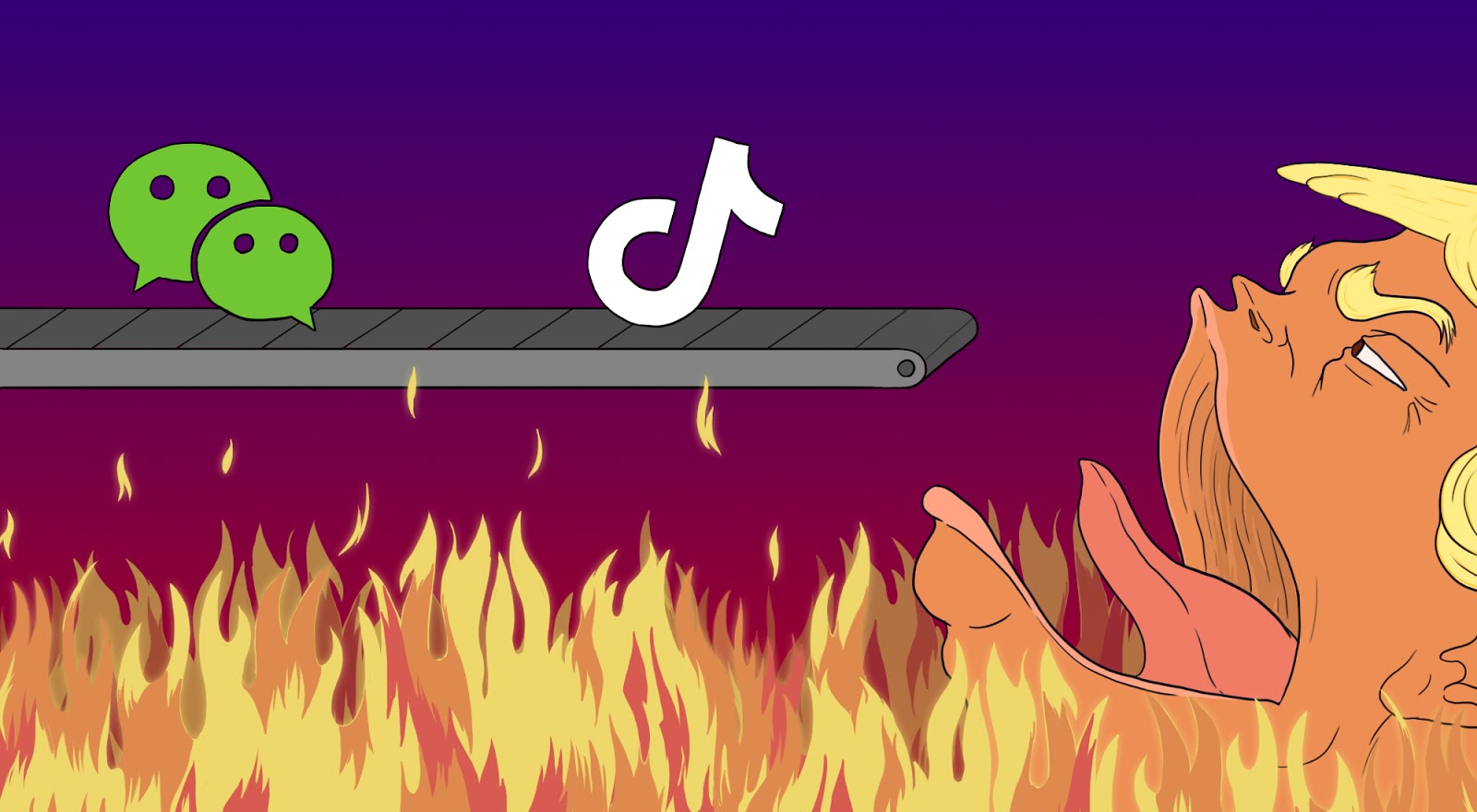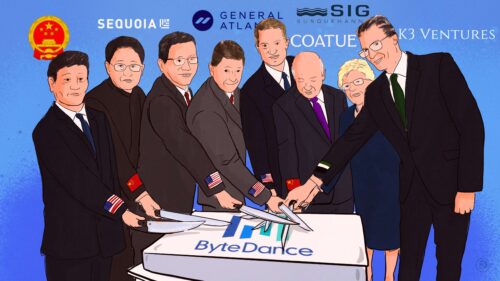After TikTok, Trump moves to attack WeChat. What’s next?
President Trump signed two executive orders, one reiterating that he wants TikTok banned (unless Microsoft buys it), and another launching a new attack against WeChat. Depending on how the WeChat order is implemented, it could have massive implications for the parent company, Tencent, and the future of the internet.

The Trump administration appears to be in a rush to announce as many “tough on China” policies as possible before the November election. From closing the Chinese consulate in Houston to forcing the sale of TikTok, American officials are following through on Secretary of State Mike Pompeo’s policy of “distrust and verify” when it comes to China.
Last night, President Trump signed two executive orders that furthered this anti-China campaign.
- One order targeted TikTok, saying that after 45 days, any transactions with the company would be illegal. This may have little practical effect other than further complicating Microsoft’s reported negotiations to buy the company’s global operations.
- The second order attacked WeChat. From that order:
The following actions shall be prohibited beginning 45 days after the date of this order…: any transaction that is related to WeChat by any person, or with respect to any property, subject to the jurisdiction of the United States, with Tencent Holdings Ltd. (a.k.a. Téngxùn Kònggǔ Yǒuxiàn Gōngsī), Shenzhen, China, or any subsidiary of that entity, as identified by the Secretary of Commerce…
WeChat is, as we have put it on The China Project, the “super-app you can’t live without in China.” Created by Tencent, it contains thousands of mini-apps for all types of services, and if you live, do business, or even travel in China, it is difficult to function without it.
The move against WeChat might be huge — though just how huge will depend on details that have yet to be clarified. The Financial Times reports:
A strict interpretation could force Apple and Google to remove WeChat and its Chinese sister app Weixin from their app stores, a move that would severely dent iPhone sales in China, such is the popularity of the app.
The U.S. could also cut Tencent off from the computer chips, servers and U.S. software that it relies upon to operate, lawyers warned. U.S. companies such as Walmart, Coke and Nike that rely on WeChat to market and sell their goods would also be hit…
One thing it cannot do is ban people from using WeChat; under the law which Mr Trump is invoking, the administration cannot block any personal communications which do not involve financial transactions…
At the lighter end of possible restrictions on Tencent is the possibility that the Commerce Department regulations will solely target WeChat’s international business.
The new regulations were rushed. According to the Wall Street Journal, they “surprised the companies, who were given no advance warning and scrambled to understand the order.” The FT further notes:
The executive order appeared to have been drafted hastily: the company it names as a target for the ban, Tencent Holdings Ltd, Shenzhen, China does not exist. Tencent Holdings is the name of the Hong Kong listed parent, while Tencent Technology is the Shenzhen-based company.
Tencent’s non-WeChat investments are safe, for now. Another aspect of the executive order that caused immediate confusion was its reference to transactions “with respect to any property, subject to the jurisdiction of the United States, with Tencent.”
- Tencent is a huge investor in Silicon Valley, including in some of the biggest game studios that created hits like League of Legends and Fortnite. The White House issued a clarification that these investments would not be affected by the executive order, the LA Times reports.
Broader significance of the attack on WeChat
The move against WeChat, coming on top of the forced sale of TikTok, begins to put teeth to Secretary of State Mike Pompeo’s vision of an American Great Firewall — an internet environment that is walled off from “unclean” Chinese technology.
- “Restricting WeChat and TikTok could be the first steps in an eye-for-an-eye reprisal” for China’s bans on countless foreign apps, the New York Times writes today.
Investors were spooked by the poorly worded executive order, and as fears grew that the Trump administration could bar all dealings with Tencent, the company’s stock “fell as much as 10.1 percent in Hong Kong,” the Financial Times reports.
- A broader sell-off affecting a range of companies “lopped off $75.7 billion in market capitalization from Chinese technology groups listed in Hong Kong.”
- “White House seeks crackdown on U.S.-listed Chinese firms,” a story in the Wall Street Journal today, indicates the Trump administration is willing to risk more market volatility to get “tough on China.”
The Chinese diaspora in the U.S. would be most personally affected by the loss of WeChat, if it is totally banned. According to the Financial Times, the app in the U.S. has “about 3 million monthly active users, mostly the Chinese diaspora and Chinese students studying at U.S. universities, for whom the app is a valuable way to keep in touch with their families and friends back home.”
- A “U.S. WeChat ban will mean more than lost connections,” writes Shanghai-based freelance writer and The China Project contributor Frankie Huang in TechNode.
See also:
- We Chat, They Watch: How international users unwittingly build up WeChat’s Chinese censorship apparatus / The Citizen Lab
- Yuan Yang on Twitter: “Is WeChat really a danger to Americans? I’m under no illusion that Trump has national security at heart in his ramp-up of hastily-written China bans in the months before the U.S. election. But on WeChat’s security, Citizen Lab [has] the best research.”
- Antony Dapiran on Twitter: “We are already seeing a lot of this ‘but this cuts off communication with China’ argument; Gerry Shih here offers a good counterpoint. This impact is first and foremost the result of a PRC policy decision to cut off all other digital communication channels over many years.”






